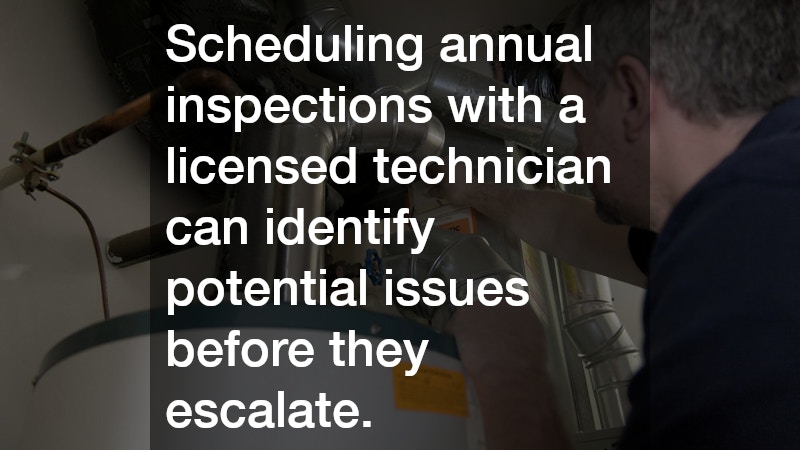Choosing an exemplary water heater installation service is crucial for ensuring optimal performance and longevity of your water heating system. This article will explore various types of water heaters, compare installation and maintenance costs, highlight what to expect from professional services, and provide tips on making sure energy efficiency and longevity.
What Types of Water Heaters Are Available?
Understanding Tank vs. Tankless Water Heaters
Traditional tank water heaters store a large volume of water and continuously heat it, making them suitable for homes with substantial hot water demands. However, due to heat loss from the tank, they tend to consume more energy.
In contrast, tankless water heaters heat water on demand, providing an endless supply of hot water and saving energy by eliminating the standby heat loss found in tank models. Despite their higher upfront cost, tankless heaters are typically more energy-efficient, which can lead to savings on utility bills over time.
Considerations for Solar and Hybrid Water Heaters
Solar water heaters harness the sun’s energy to heat the water, making them an environmentally friendly and cost-effective option. The initial investment might be higher, but incentives and reduced utility bills can offset these costs over time.
Hybrid or heat pump water heaters combine traditional storage tank methods with a heat pump to enhance efficiency. They extract heat from the surrounding air, consuming less electricity than conventional electric heaters.
How Do Installation Costs Compare?
Analyzing Initial Installation Costs
Several factors influence the upfront costs of installing a water heater, including the type of heater and the complexity of installation. Labor costs also vary, depending on the region and the service provider’s experience.
Tankless heaters generally have higher installation costs due to the need for electrical upgrades or gas line modifications. Evaluating these costs against the potential energy savings is crucial for making a sound investment decision.
Traditional tank heaters might have lower installation costs, but greater energy consumption may lead to higher total lifetime costs. Homeowners must balance initial affordability and long-term savings.
Assessing Long-term Maintenance and Energy Costs
Ongoing maintenance expenses, such as regular inspections and potential repairs, should be considered when evaluating the overall cost of a water heater. Tankless models often have lower maintenance needs due to the absence of a tank to corrode or accumulate sediment.
Energy costs are a significant component of the long-term expenses associated with operating a water heater. According to FACT, about 18% of the typical home’s energy use is attributed to water heating, making it crucial to choose an efficient model.
Comparing the expected lifespan of different water heaters can also provide insights into the true cost-effectiveness of an investment. Longevity, reliability, and potential energy savings should all be considered.
What Should You Expect from a Professional Installation Service?
Identifying Qualifications and Experience
Credentials such as licenses and certifications are paramount when selecting a professional installation service. These qualifications assure that technicians adhere to safety standards and industry best practices.
Experience is essential, as seasoned professionals can deliver high-quality installations and quickly troubleshoot potential issues. Positive reviews and testimonials often back a reliable service provider.
Conducting thorough research or seeking recommendations can simplify finding a reputable installation service. Investing time in selecting a qualified provider is worthwhile to assure peace of mind and excellent performance.
Evaluating Service Guarantees and Warranties
Reputable water heater installation services often offer guarantees and warranties that protect homeowners from defects and installation-related issues. These assurances provide an added layer of security and peace of mind.
Service warranties typically cover parts and labor, while guarantees may offer repair or replacement within a specific period. Evaluating these terms is essential for safeguarding the investment.
Understanding the fine print of warranties and guarantees can prevent unexpected expenses and assure timely support. A clear warranty policy reflects a company’s confidence in its quality and products.
How Can You Ensure Energy Efficiency and Longevity?
Selecting the Right Heater for Your Home
Choosing an appropriately sized water heater is crucial for maximizing energy efficiency. Larger households with high hot water demands may benefit from a larger unit or multiple units.
Conversely, smaller homes or those with lower usage might find smaller or tankless models more suitable. Understanding your specific requirements ensures optimal performance and cost savings.
Energy-efficient models, such as those with the ENERGY STAR label, can significantly reduce utility bills. Making an informed choice ensures both environmental benefits and financial savings.
Implementing Regular Maintenance Practices
Regular maintenance, such as flushing the tank, checking the pressure relief valve, and examining the anode rod, can extend a water heater’s lifespan. These practices also help maintain efficiency and prevent costly repairs.
Scheduling annual inspections with a licensed technician can identify potential issues before they escalate. Routine maintenance is a small investment in preventing major disruptions and prolonging the unit’s life.
By taking proactive steps to maintain your water heater, you can optimize its performance and energy efficiency. Consistent care ensures that the system continues to reliably meet household needs.
Making informed decisions about water heater installation services is vital for long-term satisfaction and efficiency. Homeowners can ensure a reliable and energy-efficient hot water supply by understanding the variety of available options, comparing costs, and choosing qualified professionals.
Taking into account both upfront and ongoing costs will enable a comprehensive view of the financial implications. Additionally, selecting the right model and maintaining it properly will enhance both its efficiency and lifespan, leading to long-term benefits.




